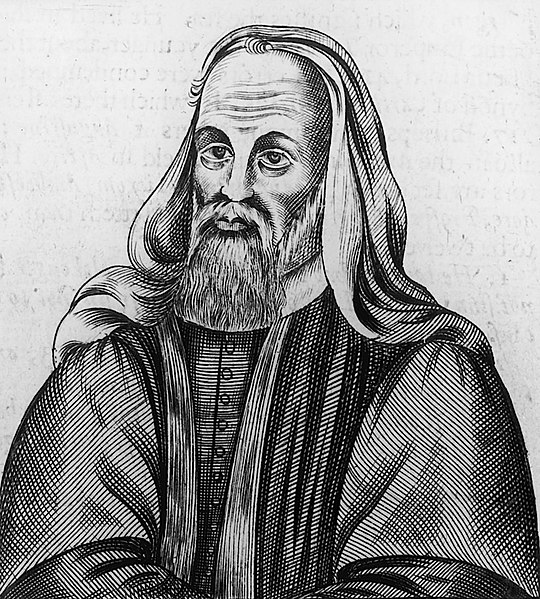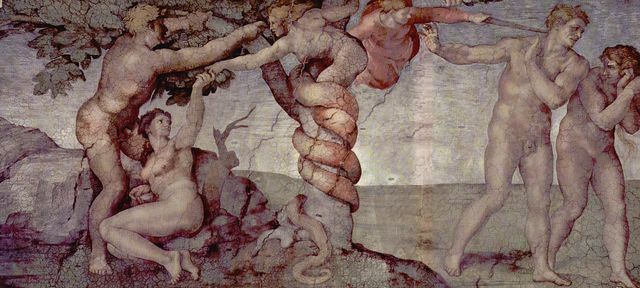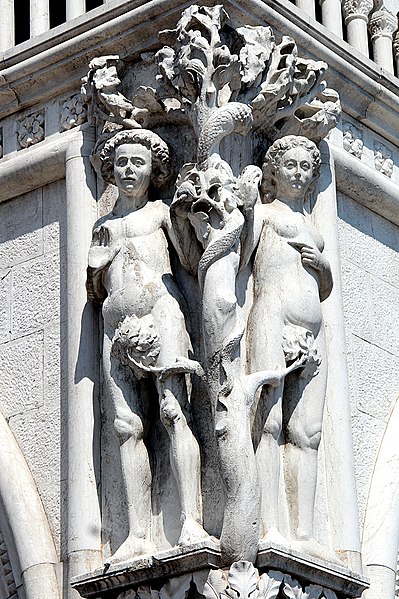Pelagius was a British theologian known for promoting a system of doctrines which emphasized human choice in salvation and denied original sin. Pelagius was accused of heresy at the synod of Jerusalem in 415 and his doctrines were harshly criticized by Augustine of Hippo, especially the Pelagian views about mankind's good nature and individual responsibility for choosing asceticism. Pelagius especially stressed the freedom of human will. Very little is known about the personal life and career of Pelagius.
A 17th-century Calvinist print depicting Pelagius
Saint Augustine of Hippo
Pelagius, as depicted in the Nuremberg Chronicle
Original sin is the Christian doctrine that holds that humans, through the fact of birth, inherit a tainted nature with a proclivity to sinful conduct in need of regeneration. The biblical basis for the belief is generally found in Genesis 3, in a line in Psalm 51:5, and in Paul's Epistle to the Romans, 5:12-21.
Depiction of the sin of Adam and Eve (The Garden of Eden with the Fall of Man by Jan Brueghel the Elder and Pieter Paul Rubens)
Michelangelo's painting of the sin of Adam and Eve from the Sistine Chapel ceiling
The Fall of Adam and Eve, by Antonio Rizzo, 1476
Augustine of Hippo wrote that original sin is transmitted by concupiscence and enfeebles freedom of the will without destroying it.







